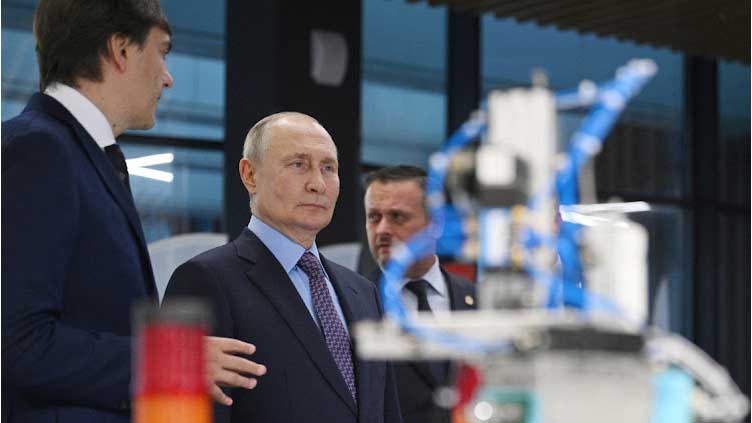Kremlin says Canadian recognition of veteran from Nazi unit is 'outrageous'

World
Kremlin says Canadian recognition of veteran from Nazi unit is 'outrageous'
MOSCOW (Reuters) - The Kremlin said on Monday it was "outrageous" that a Ukrainian man who served in one of Adolf Hitler's Waffen SS units during World War Two had been presented to Canada's parliament last week as a hero.
Yaroslav Hunka, 98, received two standing ovations from Canadian lawmakers in the House of Commons lower chamber during a visit by Ukrainian President Volodymyr Zelenskiy on Friday. The speaker, Anthony Rota, apologized in the House on Monday for formally recognising Hunka but did not heed calls to resign.
Kremlin spokesman Dmitry Peskov said the episode showed a careless disregard for historical truth, and that the memory of Nazi crimes must be preserved.
"Such sloppiness of memory is outrageous," Peskov told reporters. "Many Western countries, including Canada, have raised a young generation that does not know who fought whom or what happened during the Second World War. And they know nothing about the threat of fascism."
Canadian Prime Minister Justin Trudeau said the incident was extremely upsetting.
"This is something that is deeply embarrassing to the Parliament of Canada and by extension to all Canadians," he told reporters on Monday.
Opposition legislators called on Rota to quit but the Liberal government merely proposed striking his comments from the official record.
Rota had introduced Hunka as "a Ukrainian Canadian war veteran from the Second World War who fought for Ukrainian independence against the Russians" and "a Ukrainian hero and a Canadian hero."
During World War Two, when Ukraine was a part of the Soviet Union, some Ukrainian nationalists joined Nazi units because they saw the Germans as liberators from Soviet oppression.
Hunka served in World War Two as a member of the 14th Waffen Grenadier Division of the SS, according to the Friends of Simon Wiesenthal Center, a Jewish human rights group that demanded and received an apology from Rota.
The episode plays into the narrative promoted by Russian President Vladimir Putin that he sent his army into Ukraine last year to "demilitarise and denazify" the country, a European democracy whose Jewish president lost family members in the Holocaust.

